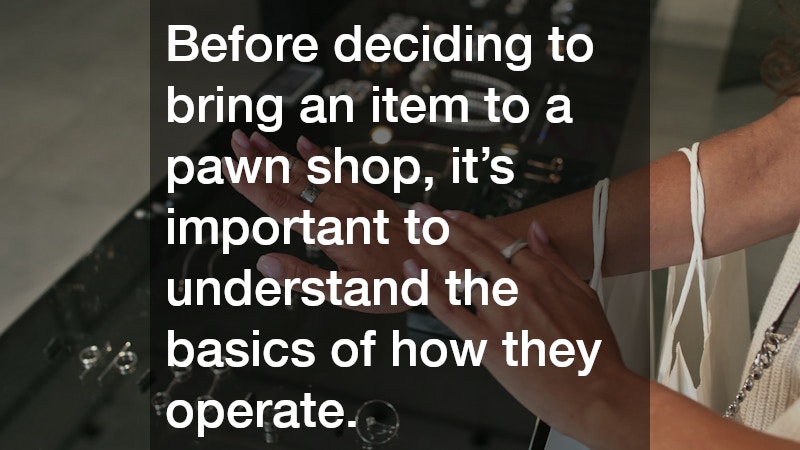
Life can throw unexpected expenses your way, and sometimes a quick financial boost is needed. One solution many people consider is taking an item to a pawn shop . Pawn shops offer a convenient way to turn valuable possessions into cash, but not every item or situation warrants a trip there.
Knowing when to bring an item to a pawn shop can save time, frustration, and even money. This guide will help you evaluate whether pawning your items is the right choice and how to get the best outcome.
Understand What a Pawn Shop Does
Before deciding to bring an item to a pawn shop, it’s important to understand the basics of how they operate. A pawn shop provides short-term loans secured by personal items. When you bring an item in, the shop evaluates its value and offers a loan amount based on that estimate. You have the option to repay the loan and reclaim your item or sell it outright if you no longer want it.
Pawn shops can provide immediate cash for valuable items such as jewelry, electronics, musical instruments, and collectibles. Some people also turn to pawn shops when they need fast access to money without undergoing credit checks or lengthy approval processes. Understanding this process helps you determine whether pawning is suitable for your situation or if other financial options might be better.
Evaluate the Value of Your Item
Not all possessions are suitable for pawning. Items that retain high resale value are typically the best candidates. Jewelry made from precious metals, designer watches, high-end electronics, and collectibles often receive fair offers from pawn shops. Before visiting, research the approximate market value of your item. Look at online marketplaces or comparable pawn shop listings to get a realistic expectation.
For items like clothing or used household goods, the resale value is often too low to justify a trip. In such cases, selling through online platforms or consignment shops may yield better returns. Remember, pawn shops must also make a profit on items, so their offer will usually be lower than retail value. Knowing your item’s worth helps you set realistic expectations and avoid disappointment.
Assess Your Financial Needs
Another factor to consider is why you are thinking of bringing an item to a pawn shop. If you need a short-term loan with flexible repayment, a pawn shop may be ideal. However, if you are looking for a long-term financial solution, other avenues such as personal loans, savings, or selling items outright may be better.
Consider whether you are comfortable with the possibility of losing the item if you cannot repay the loan. Pawn shops typically hold items for a predetermined period, and if the loan isn’t repaid within that timeframe, the shop has the right to sell the item. Being honest about your financial situation will help you decide if pawning is a responsible choice.
Condition Matters
The condition of your item greatly affects how much a pawn shop will offer. Items in excellent condition generally receive higher offers, while worn, damaged, or incomplete items may result in lower valuations. For electronics, make sure they are fully functional and include original accessories if possible. For jewelry, clean and polish pieces to enhance their appearance. Proper presentation can make a significant difference in the offer you receive.
Additionally, organizing any documentation, such as receipts, certifications, or appraisals, can improve your credibility and help the pawn shop determine a fair value. These small steps can significantly increase the likelihood of a favorable outcome.
Know the Reputation of the Pawn Shop
Not all pawn shops operate in the same manner, so choosing a reputable location is essential. Look for reviews online, ask for recommendations, and ensure the shop is licensed and follows local regulations. A trustworthy pawn shop will provide clear terms for loans, interest rates, and repayment periods.
Visiting a shop in person before committing can help you gauge professionalism and comfort level. Ask questions about their process, how long they hold items, and what happens if you cannot repay the loan. Feeling confident in the shop’s policies ensures a smoother and more transparent experience.
Timing Can Make a Difference
Timing may also influence your decision to bring an item to a pawn shop. Some items, such as seasonal collectibles or electronics, may fetch higher offers during certain times of the year. For example, electronics often have higher demand around holidays, while jewelry may be more valuable during prom or wedding seasons. Paying attention to market trends can help you maximize the value you receive from your item.
Remember, pawn shops offer convenience, security, and flexibility, but they are most effective when you bring in items that hold intrinsic value and when you understand the terms of the transaction. Taking these factors into account ensures that pawning becomes a helpful financial tool rather than a source of stress.
If you are ever unsure, start by researching your item’s worth and visiting the shop to ask questions. With preparation and awareness, a pawn shop can be a reliable partner in managing your short-term financial needs.




